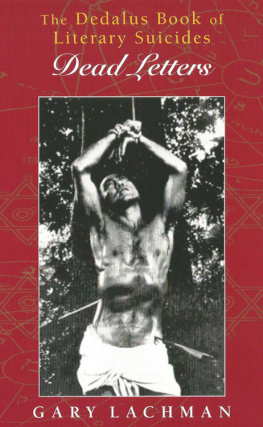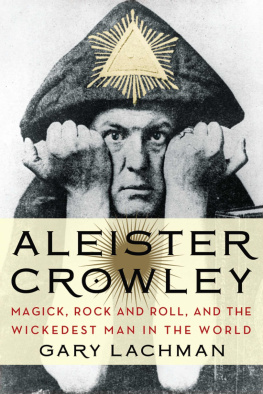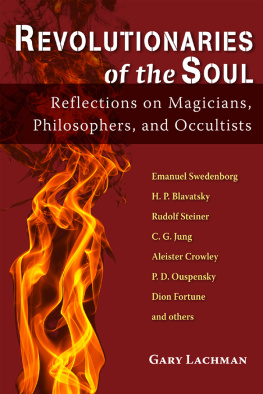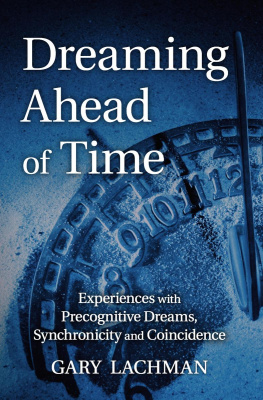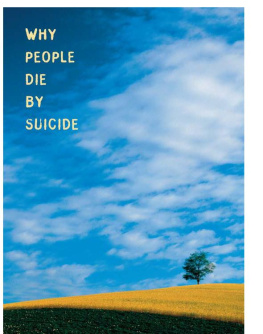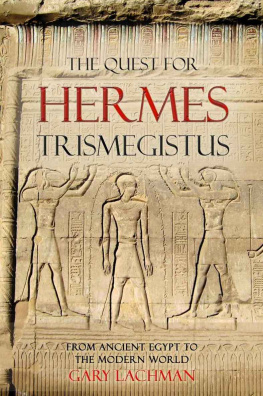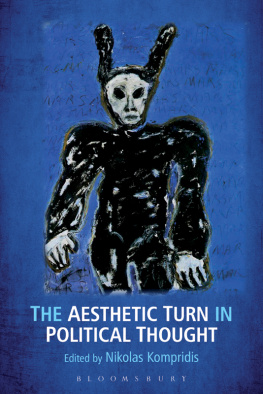A Ballade of Suicide
G.K. CHESTERTON
The gallows in my garden, people say,
Is new and neat and adequately tall.
I tie the noose on in a knowing way
As one that knots his necktie for a ball;
But just as all the neighbours on the wall
Are drawing a long breathe to shout Hurray!
The strangest whim has seized me After all
I think I will not hang myself today.
Tomorrow is the time I get my pay
My uncles sword is hanging in the hall
I see a little cloud all pink and grey
Perhaps the Rectors mother will not call
I fancy that I heard from Mr. Gall
That mushrooms could be cooked another way
I never read the works of Juvenal
I think I will not hang myself today.
The world will have another washing day;
The decadents decay, the pedants pall;
And H.G. Wells has found that children play,
And Bernard Shaw discovered that they squall;
Rationalists are growing rational
And through the thick woods one finds a stream astray,
So secret that the very sky seemed small
I think I will not hang myself today.
Envoi
Prince, I can hear the trumpet of Germinal,
The tumbrels toiling up the terrible way;
Even today your royal head may fall
I think I will not hang myself today.
From The Notebooks of Samuel Butler
For Unwritten Articles, Essays and Stories:
A Collection of letters of people who have committed suicide; and also of people who only threaten to do so. The first may be got abundantly from reports of coroners inquests, the second would be harder to come by.
*
In the fin-de-sicle, suicide clubs were something of a rage, having sprung up in cosmopolitan centres like London, Paris and St. Petersburg. It was perhaps in Mother Russia that they were most prevalent the Slavic soul, as exemplified in Dostoyevsky, had a predilection for self-destruction. One famous club, The Black Swan, hosted by Nicolai Riabushinsky, was extremely popular, although how its membership was maintained is unclear. Here, Robert Louis Stevenson shows that London, too, had its own fascination with societies dedicated to a quick escape from the travails of life.
From The Suicide Club
ROBERT LOUIS STEVENSON
Can you muster eighty pounds between you? he demanded.
Geraldine ostentatiously consulted his pocket-book, and replied in the affirmative.
Fortunate beings! cried the young man. Forty pounds is the entry money of the Suicide Club.
The Suicide Club, said the Prince, why, what the devil is that?
Listen, said the young man; this is the age of conveniences, and I have to tell you of the last perfection of the sort. We have affairs in different places; and hence railways were invented. Railways separated us infallibly from our friends; and so telegraphs were made that we might communicate speedily at great distances. Even in hotels we have lifts to spare us a climb of some hundred steps. Now, we know that life is only a stage to play the fool upon as long as the part amuses us. There was one more convenience lacking to modern comfort; a decent easy way to quit that stage; the back stairs to liberty; or, as I said this moment, Deaths private door. This, my two fellow-rebels, is supplied by the Suicide Club. Do not suppose that you and I are alone, or even exceptional, in the highly reasonable desire that we profess. A large number of your fellow men, who have grown heartily sick of the performance in which they are expected to join daily and all their lives long, are only kept from flight by one or two considerations. Some have families who would be shocked, or even blamed, if the matter became public; others have a weakness at heart and recoil from the circumstances of death. That is, to some extent, my own experience. I cannot put a pistol to my head and draw the trigger; for something stronger than myself withholds the act; and although I loathe life, I have not the strength enough in my body to take hold of death and be done with it. For such as I and for all who desire to be out of the coil without posthumous scandal, the Suicide Club has been inaugurated. How this has been managed, what is its history, or what may be its ramifications in other lands, I am myself uninformed; and what I know of its constitution, I am not at liberty to communicate to you. To this extent, however, I am at your service. If you are truly tired of life, I will introduce you tonight to a meeting; and if not tonight, at least some time within the next week, you will be easily relieved of your existence. It is now (consulting his watch) eleven; by half past, at latest, we must leave this place; so that you have an hour before you to consider my proposal. It is more serious than a cream tart, he added, with a smile; and I suspect more palatable.
*
In June 1936, Robert E. Howard, the creator of Conan and author of a host of ripping pulp yarns, mostly published in Weird Tales, was told that his mother, on whom he had a morbid fixation, would not recover from a coma. He took the revolver he often carried to protect himself from imaginary pursuers, walked out to the driveway, sat in his car, and blew his brains out. He was only thirty and at the height of his career, earning more income from his writing than any other inhabitant of his home town, Cross Plains, Texas. Unlike the fastidious H.P. Lovecraft, the other giant of Weird Tales fame, Howard was resolutely professional, and at the time of his death was about to crack the glossy market. Howard suffered from depression and paranoid delusions, and along with stories of King Kull, Bran Mak Morn, and the gloomy Solomon Kane, he was also the author of over seven hundred poems. The following shows that dark thoughts of death were not solely the domain of existentialists and nineteenth century Romantics.
Lines Written in the Realization that I Must Die
ROBERT E. HOWARD
The Back Door gapes and the Black Wall rises;
Twilight gasps in the grip of Night.
Paper and dust are the gems man prizes
Torches toss in my waning sight.
Drums of glory are lost in the ages,
Bare feet fail on a broken trail
Let my name fade from the printed pages;
Dreams and visions are growing pale.
Twilight gathers and none can save me.
Well and well, for I would not say:
Let me speak through the stone you gave me:
He never could say what he wished to say.
Why should I shrink from the sign of leaving?
My brain is wrapped in a darkened cloud;
Now in the Night are the sisters weaving
For me a shroud.
Towers shake and the stars reel under,
Skulls are heaped in the Devils fane;
My feet are wrapped in a rolling thunder,
Jets of agony lance my brain.
What of the world that I leave for ever?
Phantom forms in fading sight
Carry me out on the ebon river
Into the Night.
*
Like the Austrian novelist and biographer Stefan Zweig, who with his wife Lotte, killed himself with an overdose of veronal in Brazil in 1942, despairing at the collapse of western civilization, Klaus Mann was also a victim of the brutalisation of culture perpetrated by the Nazis. In 1949, Mann died from an intentional overdose of sleeping pills in Cannes. Son of Thomas Mann, Klaus never really escaped from the shadow of his father, with whom he had a difficult relationship. His homosexuality too, caused him much anxiety. Losing his German citizenship in 1933, Mann became a citizen of the world, moving to Amsterdam, gaining Czech nationality, and finally living in the United States, first in Princeton, later New York. His most famous work, Mephisto, based on the career of the actor Gustaf Grndgens under the Nazis, first published in 1936, was the subject of a long legal battle in the 1960s, providing Mann with some posthumous fame. Here he calls on his intellectual comrades to shock the world with a wave of mass suicides, rather like Alexander Trocchis infamous call to his fellow writers in the 1960s, to engage in shooting up heroin en masse.

